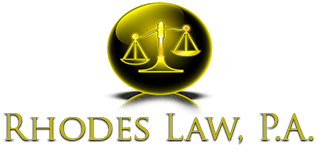How to Qualify, Obtain and Maintain Medicaid Benefits

The average nursing home costs in Florida might shock you. As a senior needing nursing home care, you'll need to be prepared to pay between $8,654 and $9,627 monthly.
As seniors near the end of their lives, often those amounts are insurmountable. They could never have saved enough to afford this potential cost. This is especially true because you can never know how long you'll need this type of care.
What does a senior do when their Medicare stops paying but needs to remain with nursing home care? For many, it means turning to Medicaid.
Medicaid benefits can be so important for those in need. It's essential to consider Medicaid planning in Melbourne, FL, for the future. Read on to learn more about Medicaid benefits in Florida.
Medicaid in Florida
It's important to understand the basics of Medicaid because it's a wide-sweeping program providing important services for many people who need it.
Medicaid in Florida is a state and federal program providing health care services for low-income individuals in the state.
Medicaid provides services for many in need, including:
- Pregnant women
- Children
- Senior residents needing long-term care
Medicaid helps seniors to pay for care in nursing homes, adult foster care homes and assisted living facilities. They also provide some necessary funding for non-medical needs for seniors in need who are homebound.
How Are Medicaid and Medicare Different?
When considering seniors needing assistance, many confuse Medicare vs. Medicaid. It's not uncommon for people to assume the two are the same.
While both can provide important services for seniors, they are not the same.
Medicare is an entitlement program developed for seniors and some disabled citizens. You become eligible for Medicare at age 65 if you've been paying into the system while working.
So, how is Medicaid different? Medicaid is a need-based program. It can help seniors and those with a disability with long-term care beyond the scope of Medicare.
Instead of age and paying in like with Medicare, you're eligible for Medicaid based on financial need and your medical necessity/disability.
Income and Asset Limits for Florida Medicaid
To qualify for Medicaid, you must meet a series of criteria through the State of Florida and the federal government.
First, you must meet age, citizenship, and residency requirements. Next, if you need care from a nursing home, you must be disabled, blind, or of advanced age.
You'll need to show that you need a nursing home level of care. The Department of Elder Affairs (Cares Units) is part of the assessment for eligibility.
Medicaid Planning
To obtain Medicaid and maintain Medicaid benefits, you must be prepared to jump through some hoops when applying. Many people who anticipate a future need will do Medicaid planning to set up their finances, so they support Medicaid eligibility.
Medicaid planning might include:
- Spending down your assets, then buying replacement assets that are not counted toward Medicaid asset limits
- Transferring assets to your children
- Transferring assets to a spouse who doesn't need long-term care
- Creating a Medicaid-qualifying income trust (a "Miller Trust")
You might also be able to create a Florida Medicaid trustor to shield some income or assets while you're in long-term care.
Get the Help You Need With Medicaid Planning in Melbourne, FL
Programs like Medicaid are important when you need care the most. They're especially important to those who can't pay for long-term care themselves.
If you anticipate the need for Medicaid planning in Melbourne, FL, we can help. Let us use our experience and knowledge to guide you through the process. Contact us today to get started.
You might also like




